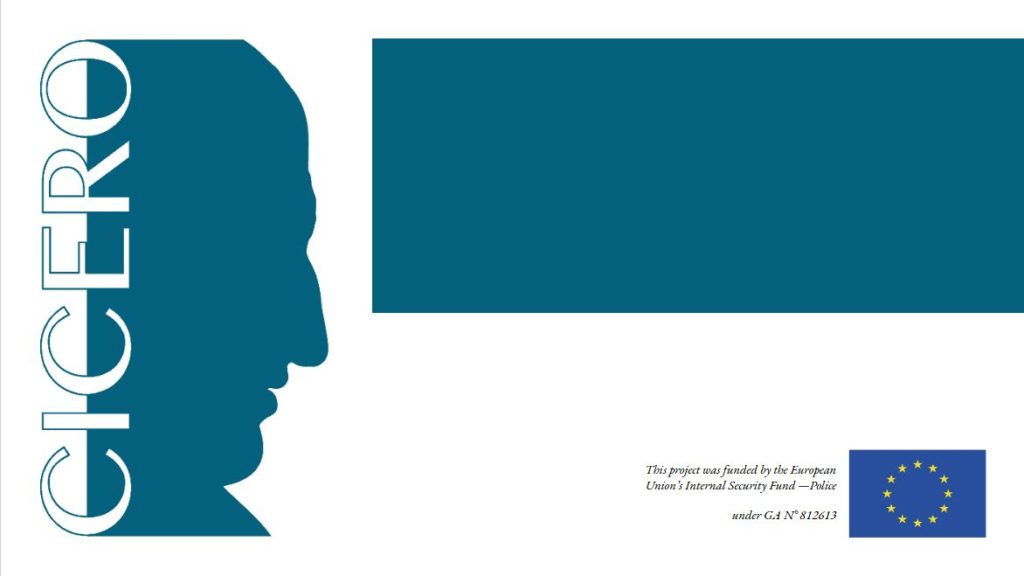The European project CICERO – Counter narrative Campaign for Preventing Radicalisation,is coordinated by the University of Turin and funded by the European Union’s Internal Security Fund with the goal of contributing to the prevention of radicalisation leading to violent extremism.
The CICERO project started in February 2019 and will be implemented for next two years until February 2021. The project is coordinated by the University of Turin, Department of Management, Prof. Piercarlo Rossi.
CICERO involves technological companies, associations and various policy and research organizations from 3 European Countries (Italy, Spain and Belgium).
The project Consortium is composed by the University of Turin (UNITO) – theProject Coordinator; Centro Studi Internazionali (CeSI); Zanasi & Partners (Z&P); Novareckon (NR); Society Against Violent Extremism (SAVE); Tecoms Srl (TEC); European Foundation for Democracy (EFD); Confederazione Islamica Italiana (CII); Expert System Iberia (ESi) and Inoftron Europa SL (IE).
The project will deal with different kinds of radicalisation narratives, ranging from those related to politico-religious extremism, to left-wing, right-wing and single-issue extremism. The aim is to undermine the appeal of the extremist propaganda, while also providing credible and positive alternatives to the related narratives.
The project web page is: https://www.cicero-project.eu/.
The CICERO consortium will, at first, identify the target audiences that are considered particularly susceptible to extremist propaganda. The most prominent radicalisation narratives circulating across the EU will be collected and analysed.
In order to maximize the effectiveness of the CICERO campaign, the consortium will develop and implement a multi-level assessment methodology, which will allow to monitor and progressively assess the impact of the campaign on the target recipients.
The overall objective is to design and to develop a campaign spreading of counter-narrative messages to address individuals at different stages of the radicalization as well as to empower (through enhancing the resilience and critical thinking) civil society in the prevention of violent radicalization.
The campaign of communication of the project will seek to undermine the appeal of contents that either encourage or justify violence on political, religious, ethnic or social grounds, by means of multimedia messages designed to challenge violent narratives as well as to provide positive alternatives, centered upon the promotion of democratic values and fundamental rights embedded in EU society.
Additional purpose of the campaign is to empower relevant civil society actors in fighting the extremist narratives.
Thanks to the expertise of project partners, artificial intelligence technology with ability to interpret languages and behavioral models will be used for the identification of extremist outbreaks. This technology is based on word processing technologies capable of automatically reading and interpreting information in different languages and of simulating the approach of the human brain.
The campaign will rely on both online and offline communication channels to disseminate a wide range of newly developed multimedia contents. These multimedia messages will be designed to challenge violent narratives and to provide positive alternatives.

